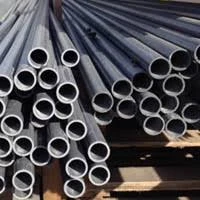
-
 Afrikaans
Afrikaans -
 Albanian
Albanian -
 Amharic
Amharic -
 Arabic
Arabic -
 Armenian
Armenian -
 Azerbaijani
Azerbaijani -
 Basque
Basque -
 Belarusian
Belarusian -
 Bengali
Bengali -
 Bosnian
Bosnian -
 Bulgarian
Bulgarian -
 Catalan
Catalan -
 Cebuano
Cebuano -
 China
China -
 China (Taiwan)
China (Taiwan) -
 Corsican
Corsican -
 Croatian
Croatian -
 Czech
Czech -
 Danish
Danish -
 Dutch
Dutch -
 English
English -
 Esperanto
Esperanto -
 Estonian
Estonian -
 Finnish
Finnish -
 French
French -
 Frisian
Frisian -
 Galician
Galician -
 Georgian
Georgian -
 German
German -
 Greek
Greek -
 Gujarati
Gujarati -
 Haitian Creole
Haitian Creole -
 hausa
hausa -
 hawaiian
hawaiian -
 Hebrew
Hebrew -
 Hindi
Hindi -
 Miao
Miao -
 Hungarian
Hungarian -
 Icelandic
Icelandic -
 igbo
igbo -
 Indonesian
Indonesian -
 irish
irish -
 Italian
Italian -
 Japanese
Japanese -
 Javanese
Javanese -
 Kannada
Kannada -
 kazakh
kazakh -
 Khmer
Khmer -
 Rwandese
Rwandese -
 Korean
Korean -
 Kurdish
Kurdish -
 Kyrgyz
Kyrgyz -
 Lao
Lao -
 Latin
Latin -
 Latvian
Latvian -
 Lithuanian
Lithuanian -
 Luxembourgish
Luxembourgish -
 Macedonian
Macedonian -
 Malgashi
Malgashi -
 Malay
Malay -
 Malayalam
Malayalam -
 Maltese
Maltese -
 Maori
Maori -
 Marathi
Marathi -
 Mongolian
Mongolian -
 Myanmar
Myanmar -
 Nepali
Nepali -
 Norwegian
Norwegian -
 Norwegian
Norwegian -
 Occitan
Occitan -
 Pashto
Pashto -
 Persian
Persian -
 Polish
Polish -
 Portuguese
Portuguese -
 Punjabi
Punjabi -
 Romanian
Romanian -
 Russian
Russian -
 Samoan
Samoan -
 Scottish Gaelic
Scottish Gaelic -
 Serbian
Serbian -
 Sesotho
Sesotho -
 Shona
Shona -
 Sindhi
Sindhi -
 Sinhala
Sinhala -
 Slovak
Slovak -
 Slovenian
Slovenian -
 Somali
Somali -
 Spanish
Spanish -
 Sundanese
Sundanese -
 Swahili
Swahili -
 Swedish
Swedish -
 Tagalog
Tagalog -
 Tajik
Tajik -
 Tamil
Tamil -
 Tatar
Tatar -
 Telugu
Telugu -
 Thai
Thai -
 Turkish
Turkish -
 Turkmen
Turkmen -
 Ukrainian
Ukrainian -
 Urdu
Urdu -
 Uighur
Uighur -
 Uzbek
Uzbek -
 Vietnamese
Vietnamese -
 Welsh
Welsh -
 Bantu
Bantu -
 Yiddish
Yiddish -
 Yoruba
Yoruba -
 Zulu
Zulu
High-Quality Fiberglass Tanks for Industrial and Commercial Use
The Advantages of Fiberglass Tanks in Modern Applications
Fiberglass tanks have gained significant popularity in various industries owing to their unique properties and benefits. As technological advancements continue to evolve, fiberglass has emerged as a preferred material for storage solutions, particularly for liquids. This article explores the key advantages of fiberglass tanks and their significance in modern applications.
One of the primary benefits of fiberglass tanks is their exceptional corrosion resistance. Unlike traditional materials such as steel or concrete, fiberglass does not corrode when exposed to various chemicals, making it an ideal choice for storing corrosive substances. This characteristic not only extends the lifespan of the tanks but also reduces maintenance costs associated with repairs and replacements. Industries such as chemical manufacturing, water treatment, and agriculture particularly benefit from this property, ensuring that their operations run smoothly without the risk of tank failure.
The Advantages of Fiberglass Tanks in Modern Applications
Moreover, fiberglass tanks offer excellent insulation properties. They effectively minimize temperature fluctuations, making them ideal for storing temperature-sensitive liquids. This insulation capability is essential in industries like food and beverage, pharmaceuticals, and oil and gas, where maintaining specific temperatures is crucial for product integrity and safety. The ability to control the internal environment of the tank helps ensure compliance with industry regulations and standards.
tank fiberglass

Fiberglass tanks also possess high structural integrity. They can be engineered to withstand a variety of stresses, including extreme weather conditions and seismic activities. This durability makes them suitable for a wide range of applications, from agricultural storage to industrial processes. Their robustness ensures that they can handle the pressure and weight of the contents, providing peace of mind to operators and stakeholders alike.
Another significant advantage of fiberglass tanks is their customizable nature. They can be manufactured to meet specific size, shape, and capacity requirements, allowing businesses to optimize their storage solutions based on individual needs. This versatility enables companies to adapt to changing demands and processes without the need for significant investments in new infrastructure.
Furthermore, the manufacturing process of fiberglass tanks is environmentally friendly. Fiberglass is often produced using sustainable materials, and the tanks themselves can be fully recyclable at the end of their lifespan. This aligns with the growing demand for eco-friendly solutions across various industries, making fiberglass tanks an attractive option for businesses looking to enhance their sustainability efforts.
In conclusion, fiberglass tanks offer a plethora of advantages that make them an essential component in modern storage solutions. With their corrosion resistance, lightweight nature, excellent insulation properties, structural integrity, and customizability, they cater to a wide range of industries and applications. As businesses continue to prioritize efficiency and sustainability, the adoption of fiberglass tanks is likely to increase, proving their value in both current and future operations. Whether in agriculture, manufacturing, or beyond, fiberglass tanks are poised to remain a vital resource in our evolving industrial landscape.
Latest news
-
Exploring the Benefits of Top Hammer Drifter Rods for Enhanced Drilling PerformanceNewsJun.10,2025
-
High-Precision Fiberglass Winding Machine for GRP/FRP Pipe Production – Reliable & Efficient SolutionsNewsJun.10,2025
-
FRP Pipes & Fittings for Shipbuilding - Corrosion-Resistant & LightweightNewsJun.09,2025
-
Premium FRP Flooring Solutions Durable & Slip-ResistantNewsJun.09,2025
-
Premium Fiberglass Rectangular Tanks Durable & Lightweight SolutionNewsJun.09,2025
-
Tapered Drill String Design Guide Durable Performance & UsesNewsJun.09,2025









